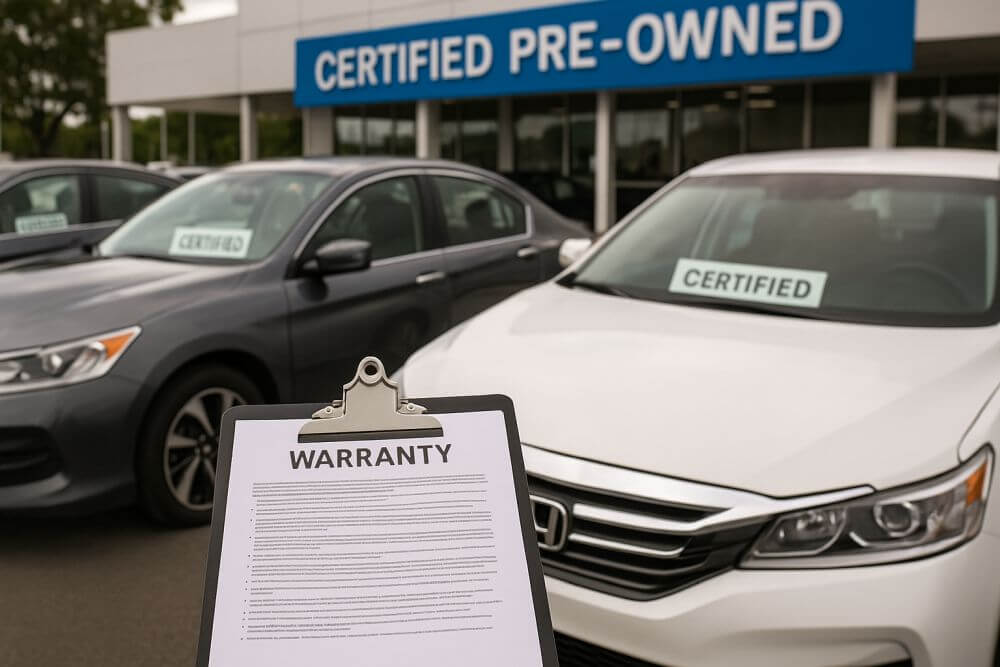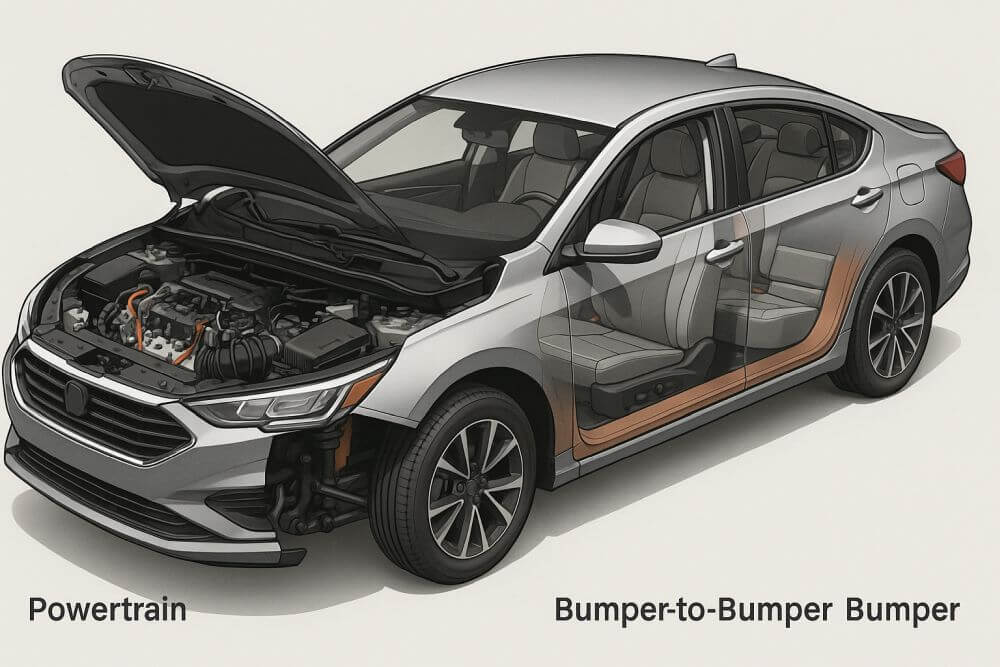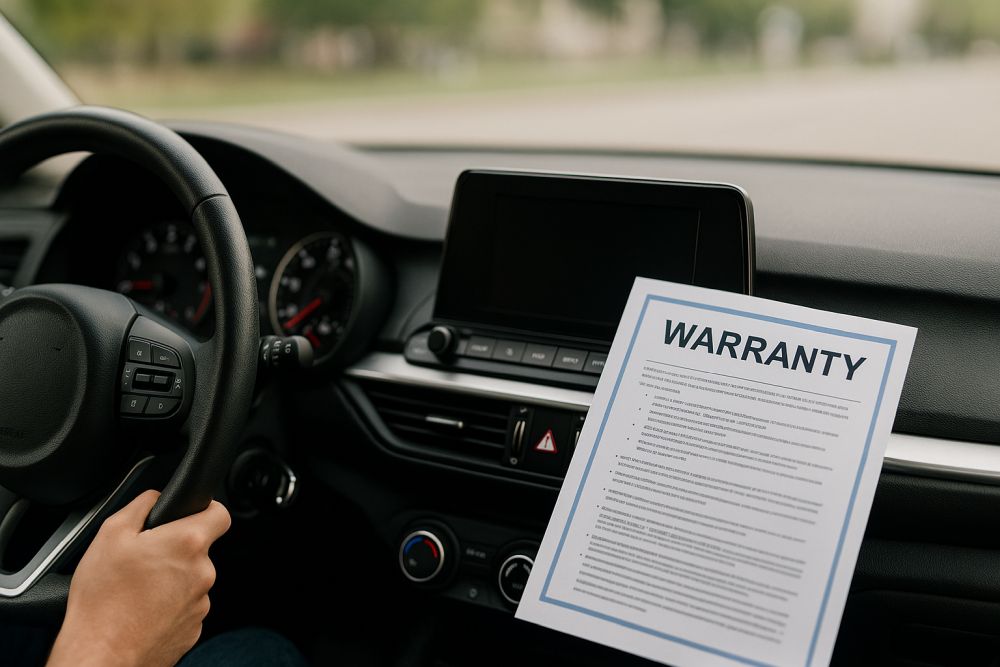Buying a used car from a private seller in California can offer serious savings — no dealership fees, better room for negotiation, and a direct connection with the seller. But those benefits come with added risk: there’s no warranty, fewer legal protections, and it’s easy for issues to be hidden unless you do your homework.

To help you stay protected, here’s a full guide to what you should know and watch for when buying from a private party in California — including title checks, inspection tips, and how to check the VIN for hidden red flags.
Why Private Sales Require Extra Caution
Unlike licensed dealerships, private sellers in California aren’t held to the same disclosure rules under the state’s Lemon Law or Auto Sales Regulations. This means:
- You’re buying the car “as-is,” with no implied warranty.
- The seller isn’t required to offer a return window or repair promise.
- You’re responsible for verifying the vehicle’s history and condition.
Because of this, you need to take extra steps to avoid buying a car with undisclosed damage, a salvaged title, or worse — one that’s stolen or still under lien.
1. Verify the Vehicle’s Title and Ownership
Ask to see the California Certificate of Title. It should clearly list the current owner’s name, the vehicle’s VIN, and indicate if the title is clean, salvaged, or rebuilt.
- Watch for title brands like: Salvage, Rebuilt, Flood Damage, or Lemon Law Buyback.
- Confirm there are no liens listed (meaning no outstanding loans).
- Cross-check the seller’s name and address with their ID.
If the seller refuses to show the title or says they “lost it,” this is a major red flag. Walk away.
2. Match the VIN and Run a Free California VIN Check
Every vehicle has a unique 17-digit Vehicle Identification Number (VIN) — it’s like a fingerprint for the car. You’ll find it on:
- The driver-side dashboard (visible through the windshield)
- The inside of the driver’s side door jamb
- The vehicle registration or title document
Use this number to check the VIN for hidden red flags. A free California VIN Check will reveal:
- Title history (clean, salvage, rebuilt, lemon)
- Accident records and damage severity
- Reported thefts or recoveries
- Past owners and registration locations
- Odometer readings (to detect rollback)
- Open safety recalls
- Lien records
This step is crucial to avoid fraud and to ensure you’re buying a car that’s legally safe and structurally sound.
3. Request Service and Maintenance Records
Ask the seller for service records, oil change receipts, repair bills, and inspection history. This helps verify:
- The car was well-maintained over time
- Any repairs were handled by professionals
- Timing belt, brake pad, and battery changes were done on schedule
If the seller doesn’t have any documentation or is vague about repairs, be cautious.
4. Perform a Visual Inspection in Daylight
Meet during the day in a public, well-lit location. Walk around the car and look for:
- Dents, mismatched paint, or rust (signs of previous bodywork)
- Uneven tire wear (could indicate suspension or alignment issues)
- Leaking fluids under the car
- Clean dashboard — no check engine lights should be on
- Foggy or water-damaged headlights or taillights
If anything looks suspicious, consider it a warning sign.
5. Test Drive and Look for Performance Issues
Always test drive the vehicle before purchase. During the drive:
- Listen for grinding, knocking, or rattling noises
- Test the brakes for responsiveness
- Check the transmission — shifting should be smooth
- Observe steering wheel alignment and vibration
- Use all interior electronics: windows, A/C, radio, and dashboard lights
6. Hire a Mechanic for a Pre-Purchase Inspection
If you’re serious about the car, hire a third-party ASE-certified mechanic to inspect it. The cost (typically $75–$150) is well worth it if it helps you avoid a lemon.
Many mobile inspection services in California can come to the seller’s location, making the process easy.
7. Complete a Proper Bill of Sale and Transfer
To legally buy a car from a private party in California, you’ll need:
- A signed California Certificate of Title
- A completed Bill of Sale (Form REG 135) – especially if no title is available
- A valid smog certificate if required
- Odometer disclosure if the car is under 10 years old
- Submit title transfer and pay taxes/fees at the DMV within 10 days
California Private Sale Car Buying FAQs
Do I need a smog certificate when buying from a private seller in California?
Yes. The seller is required to provide a valid smog certificate unless the vehicle is less than 4 years old or is otherwise exempt (e.g., electric vehicles).
How do I know if a car has a salvage title in California?
A free VIN check will tell you if the title has been branded as salvage, rebuilt, or flood-damaged. You can also look for a stamp or notation on the title certificate itself.
Is a bill of sale required in California private car sales?
While not always required by law, a bill of sale is strongly recommended. It protects both buyer and seller by documenting the transaction details.
Can I return a car to a private seller in California if there’s a problem?
No. All private vehicle sales in California are final unless the seller made a false claim or committed fraud. That’s why a VIN check and inspection are essential.
How can I tell if the odometer has been rolled back?
Compare mileage from service records, VIN check reports, and inspection documents. A sharp drop in mileage over time is a likely indicator of rollback.
Final Thoughts
Buying from a private seller in California can be a great deal — but only if you take the right steps to protect yourself. Always inspect the car, confirm ownership, and most importantly, check the VIN for hidden red flags.
With a few simple checks and the right tools, you can drive off confidently in a used car that’s both legal and reliable.


